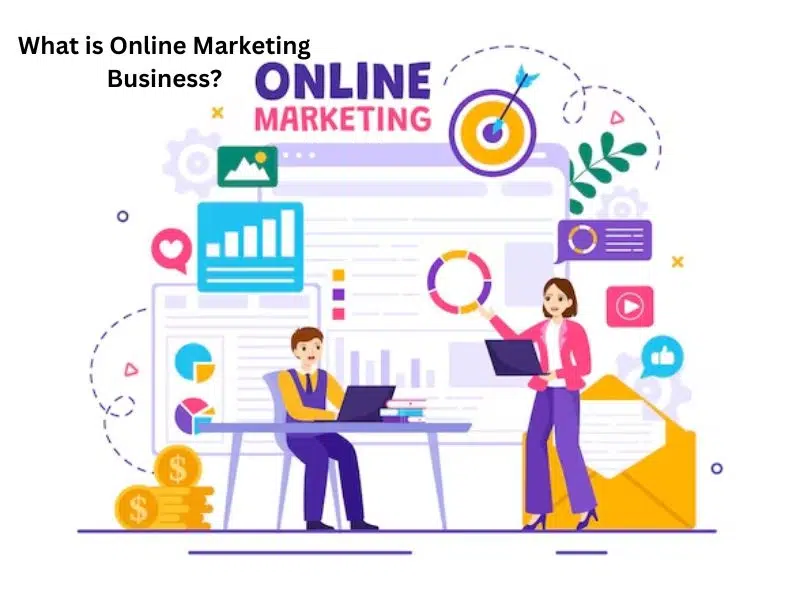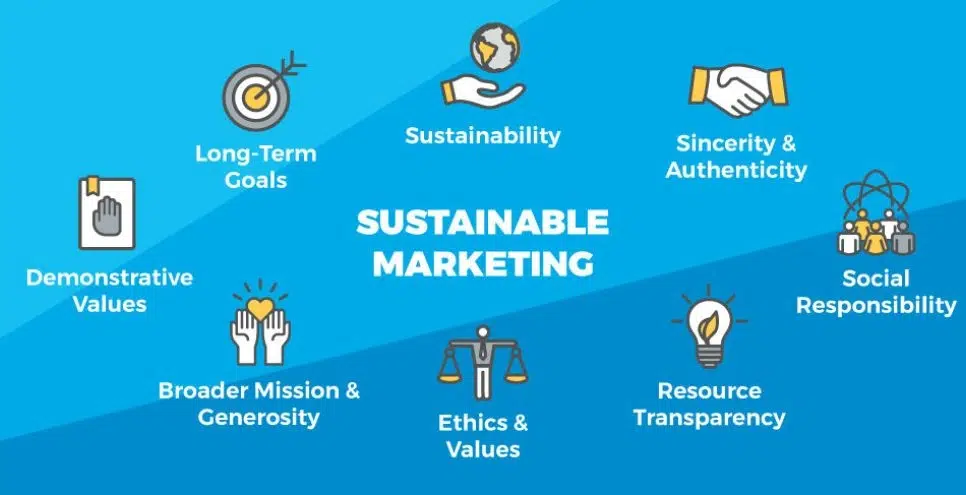What is Online Marketing Business?
What is Online Marketing Business? Discover what online marketing business is, its strategies, benefits, and case studies showcasing how businesses thrive in the digital world.
Online marketing business, also referred to as digital marketing, has become an essential part of modern commerce. It encompasses the use of internet-based platforms to promote products, services, or brands to a target audience. From search engine optimization (SEO) and email campaigns to social media advertising and influencer partnerships, online marketing has revolutionized the way businesses engage with their customers.
What is Online Marketing Business?
Understanding Online Marketing Business
At its core, an online marketing business focuses on creating a digital presence to connect with potential customers. It leverages various online channels such as search engines, websites, social media platforms, email, and mobile apps.
By combining creativity, data analysis, and strategic planning, businesses can effectively reach and convert their target audience. For instance, using tools like Google Analytics or HubSpot can help track campaign performance and refine strategies to achieve better results.
What is Online Marketing Business?
Key Components of Online Marketing Business
1. Search Engine Optimization (SEO)
SEO involves optimizing a website’s content and structure to rank higher on search engine result pages (SERPs). This helps increase organic traffic, which is cost-effective and long-lasting. For example, a blog post with relevant keywords like “what is online marketing business” can appear on the first page of Google if optimized correctly.
2. Pay-Per-Click Advertising (PPC)
PPC campaigns, such as Google Ads, allow businesses to bid on keywords and display ads at the top of SERPs. Although it requires investment, PPC provides immediate visibility and a high return on investment (ROI) if managed efficiently.
3. Content Marketing
Creating high-quality, valuable content—such as blog posts, videos, or infographics—attracts and engages audiences. Educational content addressing customer pain points often leads to higher conversions.
4. Social Media Marketing
Platforms like Facebook, Instagram, LinkedIn, and TikTok offer businesses a way to connect with their audience, build brand awareness, and drive traffic. Tools like Meta Ads Manager allow for precise targeting and analytics to optimize campaigns.
5. Email Marketing
With personalized and segmented email campaigns, businesses can nurture relationships with potential and existing customers. For instance, eCommerce businesses often use email to promote sales or abandoned cart recovery campaigns.
6. Influencer Marketing
Partnering with influencers who have a strong online presence can help brands tap into new audiences. Influencer endorsements can significantly enhance brand credibility and visibility.
7. Affiliate Marketing
Businesses collaborate with affiliates who promote their products or services in exchange for a commission. This model is performance-driven, ensuring businesses pay only for results.
What is Online Marketing Business?
Benefits of Online Marketing Business
Global Reach
Unlike traditional marketing, online marketing transcends geographical boundaries, allowing businesses to reach audiences worldwide.
Cost-Effectiveness
Digital campaigns often require less investment than traditional channels like TV or print, making them accessible to small businesses.
Personalization
Data-driven marketing enables personalized customer experiences. For instance, Netflix uses algorithms to recommend content based on viewing history, enhancing user engagement.
Measurable Results
With tools like Google Analytics, businesses can track campaign performance in real-time, measuring metrics like clicks, impressions, conversions, and ROI.
What is Online Marketing Business?
Case Studies: Success Stories in Online Marketing
Case Study 1: Nike’s “You Can’t Stop Us” Campaign
Nike’s 2020 campaign utilized video storytelling to inspire global audiences. Shared extensively on social media, it garnered over 50 million views in its first week, driving brand engagement and sales during challenging times.
Case Study 2: Airbnb’s Content Marketing Strategy
Airbnb leverages user-generated content (UGC) to promote its services. Their “Experiences” campaign featured authentic stories from hosts and guests, leading to a 20% increase in bookings.
Case Study 3: HubSpot’s SEO Strategy
HubSpot’s extensive blog library, focused on SEO-optimized content, has helped them dominate SERPs for keywords related to inbound marketing. This strategy drives over 6 million organic visits monthly.
What is Online Marketing Business?
Analytical Reports: The Impact of Online Marketing
1. Digital Advertising Revenue
According to a report by Statista, global digital advertising revenue is projected to reach $785 billion by 2026, showcasing the growing investment in online marketing.
2. ROI from Email Marketing
A study by Litmus found that email marketing offers an average ROI of $42 for every $1 spent, making it one of the most effective online marketing strategies.
3. Social Media Usage Statistics
As of 2025, over 4.89 billion people actively use social media platforms, indicating vast potential for businesses to connect with audiences online.
4. SEO’s Role in Business Growth
Bright Edge reported that organic search accounts for 53% of website traffic, emphasizing the importance of SEO for business success.
What is Online Marketing Business?
An online marketing business leverages digital platform to connect with consumers and promote products or services. Whether it’s through SEO, social media, or email campaigns, the goal is to create meaningful interactions that drive conversions and build brand loyalty.
What is Online Marketing Business?
Challenges in Online Marketing Business
Online marketing offers businesses incredible opportunities, but it is not without its challenges. Below are some of the key hurdles businesses face in the digital marketing space:
What is Online Marketing Business?
Competition
The online marketplace is saturated with businesses vying for customer attention. For small businesses, standing out against well-established brands with larger marketing budgets can be daunting. These brands often dominate search engine rankings and advertising space, leaving limited visibility for smaller players. To combat this, small businesses must focus on creating unique value propositions, hyper-targeted marketing, and leveraging niche markets to carve out their space.
What is Online Marketing Business?
Constant Evolution
Digital marketing is an ever-changing field. Search engine algorithms are updated frequently, social media platforms introduce new features, and user behavior continuously shifts. For instance, Google’s algorithm updates, such as those emphasizing page experience or mobile-first indexing, can dramatically affect website rankings. Businesses must stay informed and flexible to adapt their strategies and maintain visibility, which can be both time-consuming and resource-intensive.
What is Online Marketing Business?
Privacy Concerns
With increasing concerns over data privacy, businesses face stricter regulations like the General Data Protection Regulation (GDPR) and the California Consumer Privacy Act (CCPA). These laws require companies to handle user data responsibly and transparently. Failure to comply can lead to hefty fines and reputational damage. Balancing personalized marketing with privacy compliance is a delicate task that requires robust systems for data collection, storage, and usage.
What is Online Marketing Business?
Budget Constraints
For smaller businesses, budget constraints pose significant challenges in executing comprehensive online marketing strategies. While large companies can invest in tools, platforms, and skilled teams, small businesses often rely on limited resources. This can restrict their ability to compete in paid advertising or create high-quality content consistently. To overcome this, small businesses need to prioritize cost-effective strategies like SEO, organic social media, and email marketing.
What is Online Marketing Business?
Future Trends in Online Marketing Business
While online marketing has its challenges, future trends offer promising opportunities for growth and innovation. Here are some emerging trends businesses should embrace:
What is Online Marketing Business?
AI and Automation
AI is transforming the way businesses tackle marketing strategies. AI-powered tools like Chat GPT and Jasper enable companies to create personalized content, automate customer support, and optimize campaigns efficiently. Predictive analytics, driven by AI, allows marketers to forecast trends and tailor strategies to meet customer needs. Automation tools, such as email drip campaigns and social media scheduling platforms, free up time for marketers to focus on creative tasks.
What is Online Marketing Business?
Voice Search Optimization
With the growing popularity of smart speakers like Amazon Echo and Google Home, voice search is becoming a dominant force in online marketing. Businesses need to adapt their SEO strategies to include natural language queries and long-tail keywords. For example, instead of targeting “best running shoes,” companies might optimize for “What are the best running shoes for beginners?” This shift ensures businesses remain discoverable through voice-activated devices.
What is Online Marketing Business?
Video Marketing
Short-form video content continues to be a powerful medium for engagement. Platforms like TikTok, Instagram Reels, and YouTube Shorts offer brands a way to tell compelling stories in bite-sized formats. Videos are not only engaging but also effective at driving conversions. As more consumers prefer visual content, businesses should invest in video creation to stay relevant and competitive.
What is Online Marketing Business?
Sustainable Marketing
As consumers become more environmentally conscious, brands are under pressure to adopt sustainable marketing practices. Highlighting eco-friendly initiatives, reducing carbon footprints, and promoting sustainable products resonate strongly with modern audiences. Companies that align their values with sustainability will build stronger customer loyalty and differentiate themselves in the crowded digital space.
What is Online Marketing Business?
FAQs
What is the difference between digital marketing and online marketing?
Both terms are often used interchangeably. However, online marketing specifically refers to internet-based strategies, while digital marketing encompasses all digital channels, including offline digital methods like SMS marketing.
How can small businesses benefit from online marketing?
Small businesses can use cost-effective strategies like social media, SEO, and email marketing to reach their target audience and compete with larger companies.
What is the most effective online marketing strategy?
The effectiveness depends on the business and its goals. For many, a combination of SEO, content marketing, and social media yields the best results.
How important is data analysis in online marketing?
Data analysis is crucial for measuring campaign performance, understanding customer behavior, and refining strategies for better outcomes.
Can online marketing replace traditional marketing?
While online marketing has gained dominance, traditional marketing still holds value for local outreach and certain demographics.
What tools are best for online marketing?
Popular tools include Google Analytics, HubSpot, Mailchimp, SEMrush, and Canva, depending on the specific marketing needs.
What is Online Marketing Business?
Conclusion
The online marketing business is an ever-evolving field that offers endless opportunities for businesses to grow, connect with their audiences, and drive revenue. By implementing effective strategies, staying updated on trends, and analyzing data, companies can thrive in the digital landscape. Whether you’re a startup or an established enterprise, investing in online marketing is no longer optional—it’s a necessity.








